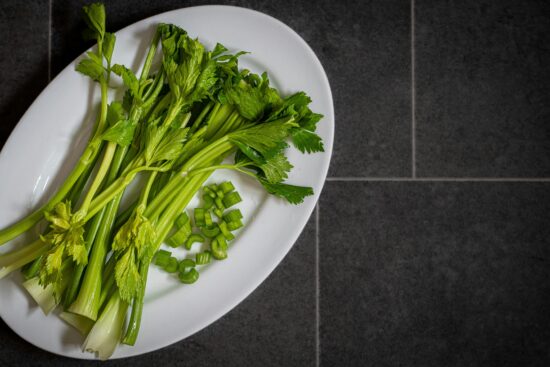
Acid reflux and heartburn are common digestive complaints that can cause discomfort and disrupt daily life. The burning sensation and regurgitation of stomach acid into the esophagus can be painful and frustrating. While medications can offer relief, many people prefer to explore natural remedies to address these issues. In this article, we will discuss a variety of strategies to reduce acid reflux and heartburn naturally, helping you find comfort without relying solely on medication.
Understanding Acid Reflux and Heartburn
Before we delve into natural remedies, it’s essential to understand the root causes of acid reflux and heartburn. These conditions often occur due to the weakening of the lower esophageal sphincter (LES), a ring of muscle that separates the esophagus from the stomach. When the LES doesn’t function correctly, stomach acid can flow back into the esophagus, leading to acid reflux.
Common triggers for acid reflux and heartburn include:
- Diet: Certain foods and beverages, such as spicy foods, citrus fruits, tomatoes, and carbonated drinks, can relax the LES or irritate the esophagus, leading to symptoms.
- Overeating: Consuming large meals or lying down shortly after eating can increase the risk of acid reflux.
- Obesity: Excess weight can put pressure on the abdomen, pushing stomach contents upward into the esophagus.
- Smoking: Smoking weakens the LES and can worsen symptoms.
- Pregnancy: Hormonal changes and increased pressure on the abdomen during pregnancy can trigger acid reflux.
Now that we have a better understanding of the causes, let’s explore natural ways to alleviate acid reflux and heartburn.
- Lifestyle Modifications
- a. Maintain a Healthy Weight: Losing excess weight can reduce pressure on the abdomen, relieving acid reflux symptoms.
- b. Eat Smaller Meals: Opt for smaller, more frequent meals to prevent overeating.
- c. Avoid Trigger Foods: Identify and eliminate foods that trigger your symptoms from your diet. Keep a food diary to track your reactions.
- d. Don’t Lie Down Immediately: Wait at least two to three hours after eating before lying down or going to bed.
- Dietary Changes
- a. Low-Acidity Diet: Choose foods that are less likely to trigger acid reflux, such as oatmeal, non-citrus fruits, vegetables, lean proteins, and whole grains.
- b. Ginger: Incorporate ginger into your diet, as it has natural anti-inflammatory properties that can soothe the digestive tract.
- c. Apple Cider Vinegar: Some individuals find relief by diluting a tablespoon of apple cider vinegar in water and drinking it before meals. However, this remedy may not work for everyone.
- d. Chew Gum: Chewing sugar-free gum after meals can stimulate saliva production, which can help neutralize stomach acid.
- Herbal Remedies
- a. Aloe Vera: Aloe vera juice can help soothe the esophagus and reduce inflammation.
- b. Marshmallow Root: Marshmallow root tea may provide relief by coating the esophagus and reducing irritation.
- c. Chamomile: Chamomile tea has anti-inflammatory properties and can help calm the digestive system.
- Lifestyle Practices
- a. Elevate the Head of Your Bed: Placing blocks or risers under the head of your bed can help gravity keep stomach acid from flowing into the esophagus during sleep.
- b. Wear Loose Clothing: Tight clothing can put pressure on the abdomen, worsening acid reflux.
- c. Manage Stress: Stress can exacerbate digestive issues. Incorporate stress-reduction techniques like meditation and yoga into your daily routine.
- Acupuncture and AcupressureSome individuals find relief from acid reflux and heartburn through acupuncture or acupressure. These practices aim to balance the body’s energy flow and promote overall well-being.
- ProbioticsConsuming foods rich in probiotics, such as yogurt, kefir, and sauerkraut, can promote a healthy gut microbiome, potentially reducing acid reflux symptoms.
- HydrationDrinking plenty of water can help dilute stomach acid and reduce the risk of heartburn. However, avoid excessive water intake during meals, as it can cause bloating.
- Dietary SupplementsSome individuals may benefit from dietary supplements such as melatonin, melatonin-rich foods like cherries, and deglycyrrhizinated licorice (DGL) supplements. These can help improve sleep quality and soothe the digestive tract.
Conclusion
Acid reflux and heartburn can significantly impact your quality of life, but natural remedies offer effective ways to manage and reduce these symptoms without relying solely on medication. It’s crucial to remember that what works for one person may not work for another, so be patient and persistent in your efforts to find relief.
Incorporating lifestyle changes, modifying your diet, trying herbal remedies, and exploring alternative therapies can help you regain control over your digestive health. However, if your symptoms persist or worsen, it’s essential to consult a healthcare professional for a proper evaluation and personalized treatment plan. With the right approach, you can achieve lasting relief from acid reflux and heartburn, allowing you to enjoy a more comfortable and fulfilling life.





